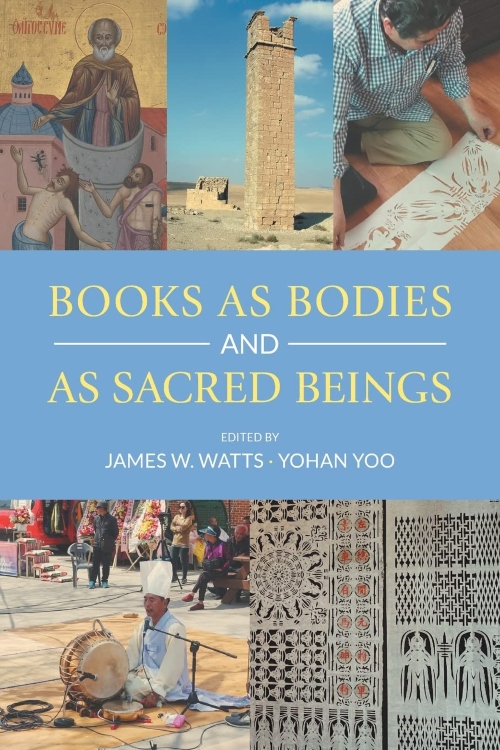Books as Bodies and Sacred Beings
An international team of scholars addresses the theme of books as sacred beings - to what extent can a sacred text acquire a life and character of its own, with a presence carrying a message independent of its content and acknowledged even by those with no commitment to it?
 Books as Bodies and Sacred Beings
Books as Bodies and Sacred Beings
Watts, James W & Yihan Yoo (eds)
Equinox
ISBN: 978-1781798850
Reviewed by Alec Gilmore
When is a book not a book? When it is Sacred Text. An elderly lady turns up at the manse with a much used, dilapidated Bible. She has got a new one. Could I dispose of the old? Why can’t she? Because it is Scripture and she fears consequences.
Superstition? Maybe, but the incident focuses a wider issue explored in depth and detail by Watts and Yoo, along with six North American, Asian and European colleagues. To what extent can Sacred Text acquire a life and character of its own, with a presence carrying a message independent of its content and acknowledged even by those with no commitment to it?
Religious Education in USA schools is off limits but when some teachers were known to be denying student rights to read their Bibles in school in their free time, their evangelical counterparts launched a Bring Your Bible to School Day, combined with teaching on personal religious freedoms in public schools. Pupils were encouraged to ‘let their light shine’ and placing their Bibles prominently on their desks made a statement in itself — not just print and paper but a ‘Being' or a ‘Body' — initiating discussions of faith with their peers.
Sacred Texts are not simply books nor are they simply texts. Rules for handling the Qur’an, for example go beyond the Sacred Text to cover calligraphy and illumination, the production and use of amulets and Qur’anic medicine, while a chapter on the Hindu tradition focuses ‘not on books as sacred beings but on beings as sacred books’. Like people (‘flesh and blood, with their own ideas, opinions and idiosyncrasies), they have a quality all their own. Their very presence can convey a message or engage in a personal encounter with life-changing consequences, fortified by a capacity to secure their message beyond the destruction of the container.
At the risk of reductio ad absurdum, and with a reversal of the norm, the Sacred Texts of Daoism assume that whereas most faiths see Sacred Texts as the creation of the religious community, Daoism sees humans emerging from the Sacred Texts and creating the community.
As the digital age encroaches on just about everything, publication comes with consummate timing and our contributors do not miss a trick, leaving the reader with two topics for further reflection.
One, what are the consequences for Sacred Text in a digital society? Currently they are ‘read, studied, performed, sung, painted, revered, processed, marched, waved, displayed and desecrated’, so bearing in mind the variety of formats in which we now have them (scroll, codex etc), what would be an appropriate digital format? Screened or streamed?
Wisely they eschew anything approaching prognostication or recommendation though a chapter devoted to ‘The Iconicity of Sacred Texts in a Liminal Age‘, suggests it may be time for some fresh thinking on current usage. What purpose are Sacred Texts intended to serve and how to overcome the consequences for the loss of the printed book?
Bedtime reading only for established insomniacs. ‘An apple a day!’ for all others.
Alec Gilmore is a Baptist minister
Baptist Times, 05/05/2023